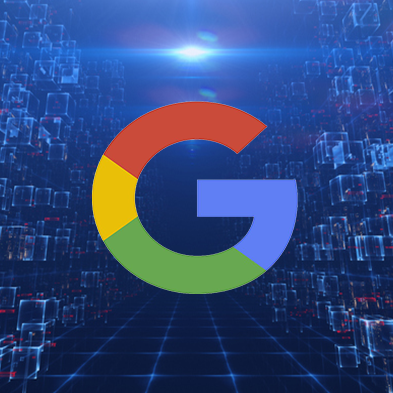More than 86% of online searches happen on Google. As marketers, we know firsthand how important Google is to business outcomes. It informs nearly all aspects of enterprise-level marketing strategies, from the architecture of our websites and the structure of our web pages to the content we produce and the ways we distribute it. All of our tactics are continuously focused on the same goal: To find our way to page one of Google search results.
But, as Google’s Head of Search Prabhakar Raghavan said during the company’s recent SearchOn event, “There’s never been more choice and competition in the ways people access information.”
Staying Ahead of the Curve to Win the Enterprise SEO Game
Raghavan was referring to more than just Google search result pages, referencing all the ways people find what they want online using social platforms like Twitter and Pinterest, Amazon’s marketplace and more. Yet, the reality for enterprise organizations is that there’s never been more businesses striving to rank higher on Google — all competing to win a position at the top of Google’s search results pages.
Because the competition is growing exponentially, marketers need to know more than a basic understanding of Google’s search algorithm. It’s imperative that we stay ahead of the curve on all things search related so that our enterprise SEO and search marketing efforts are aligned with the flurry of technological advances happening nearly daily on the world’s most popular search platform.
October 2019 marked a big month for Google. The company confirmed several major updates attached to its artificial intelligence capabilities, underscoring how its search algorithm is getting smarter and much deeper into natural language processing systems. Here’s everything you should know:
A quick recap of Google search updates
Before we get into Google’s latest updates, it’s helpful to have a historical perspective of what has happened up to this point. Google is constantly tweaking its algorithm to create seamless search experiences for users. The major updates during the past decade have revolved around resolving specific issues and improving existing capabilities.

For example, going back to 2011, the Panda update was aimed at excluding poor quality sites from search results, while the 2012 Penguin update was focused on removing spammy sites. In 2013 Google announced its Hummingbird search algorithm, designed to produce more precise answers at a faster speed. Things got super interesting in 2015 when Google launched RankBrain, the machine learning system that enables Google to process search queries based on intent.
Search Engine Journal called it, “A revolution in how search results are determined.”1
RankBrain embedded Google’s AI technology more deeply into its search algorithm. In a Bloomberg report from October, 2015, Google confirmed RankBrain had become the third-most important search query signal since its deployment2.
“If you look back at all these updates, you can see the pattern over the past 20-years,” writes Barry Schwartz, a leading search expert and Search Engine Land contributing editor. According to Schwartz, Google has continually worked to build algorithms that better understand content and signals in faster and smarter ways3.
With it’s most recent updates and the full roll-out of BERT — Google’s natural language processing system — Google is only getting smarter, following its pattern to improve the search experience across all platforms and devices.
The BERT update: How Google is getting smarter and more efficient at ranking content

Google first began talking about its BERT technology two years ago, explaining how it allowed anyone in the world to, “Train their own state-of-the-art question answering system.” (If you want to get super into the weeds, BERT is an acronym for Bidirectional Encoder Representations from Transformers.)4
Last year, Google announced it had begun using BERT to serve up more relevant search results. At the time, Google’s Vice President of Search Pandu Nayak called it, “The biggest leap forward in the past five years, and one of the biggest leaps forward in the history of Search.” 5 With this latest update, Google confirmed BERT is now being used in almost every English-language query6.
So how does BERT impact enterprise SEO? The natural language processing system allows Google to process words in relation to all the other words in a sentence. Instead of processing a search query word-by-word, in the order that the words are typed, BERT processes a query based on intent.
Along with the expansion of BERT, Google introduced a new spelling algorithm to better understand and decipher misspelled words (according to Google, one in ten queries contains a misspelled word). It also confirmed it is now able to “better understand the relevancy of specific passages, not just the overall page” — this allows Google to find “needle-in-a-haystack information” on specific topics, an update that will improve 7% of search queries.

What Google’s Latest Updates Mean for Enterprise SEO
Understanding how Google is advancing its search platform and improving its algorithm is crucial to improving your overall SEO strategies. Enterprise organizations share the same goals as any other business when it comes to SEO: Rank higher on Google than the competition. But managing the SEO efforts of an enterprise organization is a massive endeavor with several moving parts.
The mix of search marketing priorities grows exponentially depending on the size of the enterprise and its target audiences. It’s not just about maintaining thousands, if not millions, of web pages and an abundance of content. To be truly effective at SEO, enterprise organizations must focus on a mix of priorities beyond their technical and on-page SEO efforts. Google’s ability to more accurately decipher the intent of a search query is especially significant as mobile search and virtual assistants like Google Home take on a much bigger role in enterprise SEO.
Instead of having to focus solely on keywords, search marketers are looking at all the ways their customers are asking for information online — and using that insight to produce more relevant content. Online reputation management and customer experience platforms have become key resources in terms of uncovering these insights, giving enterprise organizations the ability to better understand what their customers want and how they are engaging with businesses online.
Get a closer look at Google’s Local Search Algorithm by downloading Winning Locally on Google eBook.
1 “A Complete Guide to the Google RankBrain Algorithm” Search Engine Journal, 2020.
2 “Google Turning Its Lucrative Web Search Over AI Machines” Bloomberg, 2015.
3 “What 20 years of Google algorithm updates say about what SEOs should focus on next” Search Engine Land, 2020.
4 “Open Sourcing BERT: State-of-the-Art Pre-training for Natural Language Processing” Google AI Blog, 2018.
5 “Understanding searches better than ever before” Google Blog, 2019.
6 “How AI is powering a more helpful Google” Google Blog, 2020.


















